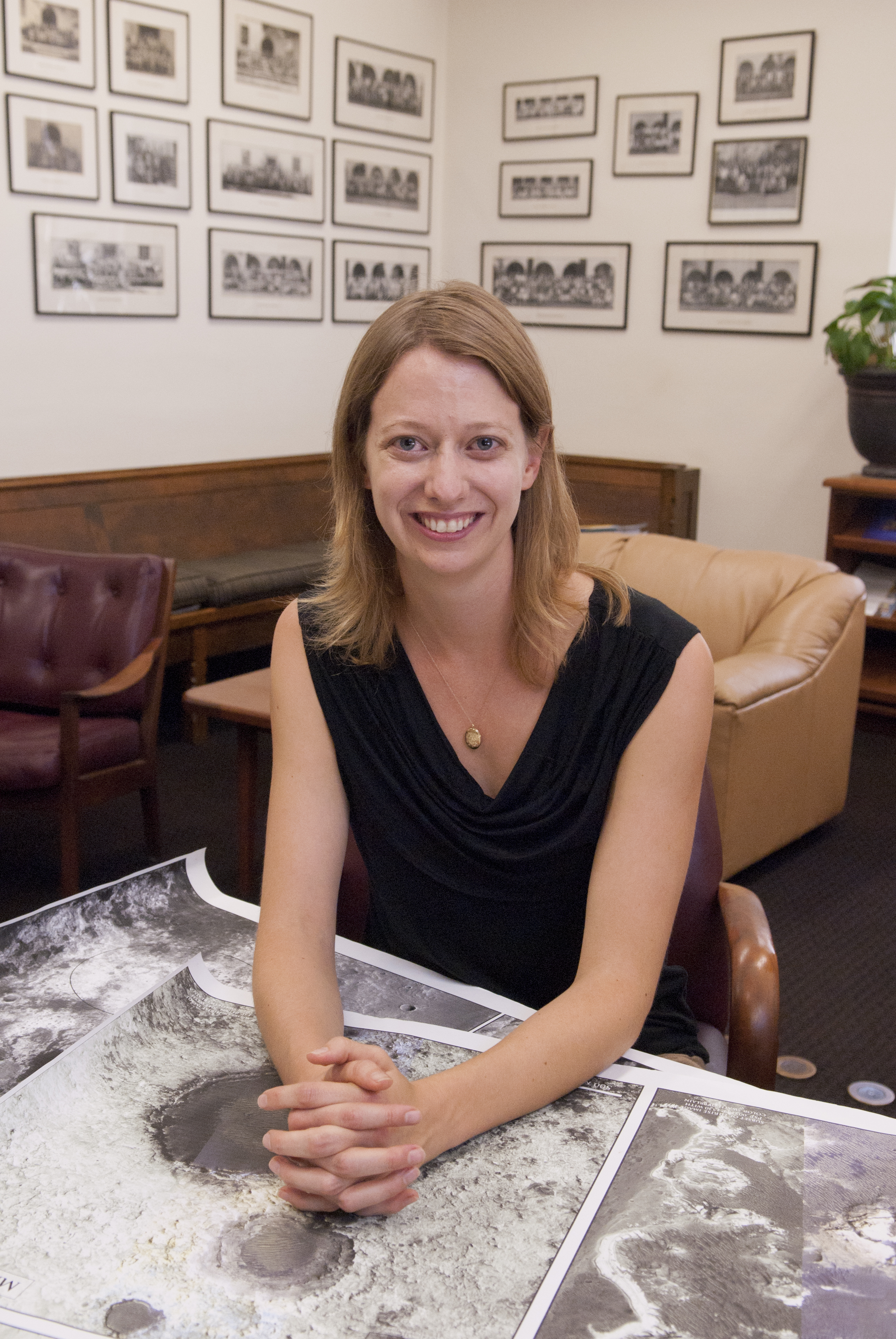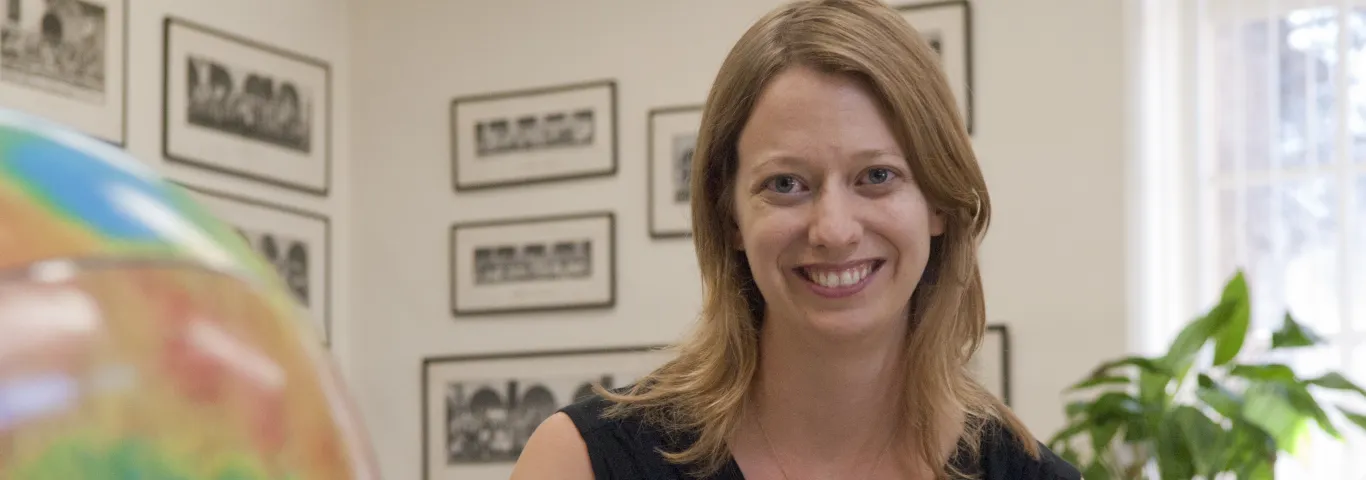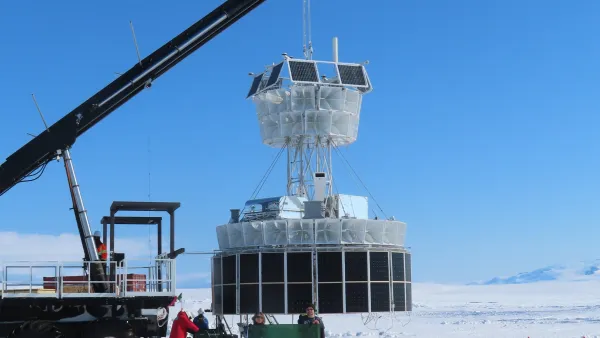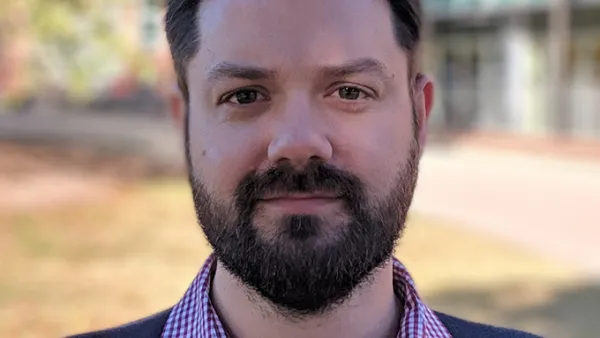
Even as an undergraduate, Bethany Ehlmann, AB 2004, was aware of the important connections between science and policy. At Washington University, Ehlmann explored diverse interests by majoring in both Earth and planetary sciences and environmental studies, with an emphasis on social science.
While still a WashU student, Ehlmann got an early look into mission work and doing science as part of a large team. She spent the last semester of her senior year at the Jet Propulsion Lab (JPL), working on NASA’s Mars Exploration Rover mission with her advisor, Ray Arvidson, and living on “Mars time.”
This experience would prove to shape Ehlmann’s trajectory, even as her horizons expanded far beyond WashU, and eventually even beyond Mars. Ehlmann’s next stop was Oxford University, where she earned master’s degrees in Environmental Change and Management and Geography as a Rhodes Scholar.
“While I was at Oxford, I decided that while I liked science policy, if I pursued it as a career, I wanted to do it as a scientist, rather than as a policy expert,” Ehlmann recalled. “That was the reconciliation of my dual majors at WashU. I really loved the experience that I had in 2004 at JPL, that excitement of working with a team on a spacecraft that was exploring another planet, seeing new vistas, getting new data, and then having to decipher what that meant and what to do in response.”
Now as a professor of planetary science at Caltech, Ehlmann is doing science research and leading mission teams. As a member of National Academies advisory committees, she continues to address the overarching questions of current science policy – how do you value the future, socially and economically? what are the priorities of exploring the solar system or ethical obligations against contamination when searching for life? – from the perspective of a researcher, as well as a policy advisor. For Ehlmann, these different modes of thinking are essential skills acquired during her multidisciplinary training at WashU.
“Because mission-driven exploration is a complicated, expensive endeavor, you have to have some knowledge of policy to figure out, how do I orient what I want to do scientifically with the goals and priorities of NASA or with collaborators around the globe, such as the European Space Agency?” Ehlmann said. “What’s needed to do a planetary mission doesn’t happen in a vacuum. I’ve been very fortunate to be serving in policy roles, as I had hoped, with my hat on as a scientist, making recommendations on space priorities. I’m exactly where I wanted to be in the sense that day-to-day I’m doing plans and exploration, but then I have this policy angle, too.”
Currently, Ehlmann works on the Mars Curiosity rover and is also part of the science team for the Perseverance rover that launched July 2020. This latest mission is especially exciting for Ehlmann because Perseverance will be landing in an area that she knows perhaps better than anyone else on Earth, having studied it extensively during her PhD research with the Mars Reconnaissance Orbiter in 2008.
Ehlmann’s work on Mars makes up one part of an extensive mission portfolio. “I got started working on Mars, but since I came to Caltech, I’ve worked on data from the asteroid Ceres too. Now I’m leading the Lunar Trailblazer mission to the Moon, and I’m also working on mission concepts for Venus and the icy satellites of the outer solar system,” Ehlmann said. “So I’ve been steadily expanding throughout the solar system to explore all kinds of cool things.”
The mission she leads, Lunar Trailblazer, has one special feature. In the project, Ehlmann will be archiving data with the PDS Geosciences Node housed at WashU, working with programmer and analyst Susan Slavney. Ehlmann first met Slavney some 20 years ago, while working with Arvidson as a first-year student. In addition to the lunar orbiter’s primary goal of investigating water on the Moon, it’s bringing Ehlmann’s connections to her alma mater full circle.




